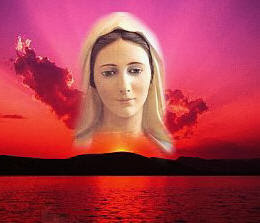
"SACRAMENTUM CARITATIS"
VATICAN - WORDS OF DOCTRINE - An Exhortation which convinces and admonishes
Rev. Nicola Bux and Rev. Salvatore Vitiello
Vatican City (Fides Service) - It is an ‘exhortation’, from the Latin etymology convincere; and it is ‘apostolic’, because it has the authority of the college of the Successors of the Apostles with Pope Benedict XVI at its head; ‘post-synodal’, because it is the fruit of an institution with which the Church, since about the 5th century, has expressed her being a community on a journey together; the title is “Sacramentum caritatis” since it treats the mystery of the Body and Blood of Christ which Jesus entrusted to his disciples and to us and whose effect is communion, being one in heart and mind like the communion He lives with the Father and the Spirit, and for which he gave his life (cfr n 10).
The theme of the Eucharist was proposed to John Paul II by the Bishops taking part in the Synod in 2001 who felt the need to examine the real incidence of the Eucharist on the life of the Church as summit of her path of initiation and reconciliation and also as source of her life and mission in the world. Pope Benedict XVI presided the 11th Synod of Bishops in 2005, and urged the bishops not only to extol the Eucharist but above all to experience its power. Yes, the “Bread of the strong”, which contains the divine-human power of the Saviour, the incarnate Word, the Son of God born of the Virgin Mary, the Lord crucified and risen, the living God in body and blood, soul and divinity. He is the comfort - cum-fortis - of the saints, of all who unite themselves to Him in vivifying Communion. He is the Living One whose presence, as Revelation recalls, is adored by the hosts of heaven and on earth must be adored by all who believe in Him.
Only the presence of Christ can move the human heart to the depth. Christ promised: “I am with you until the end of time”. This is why the Synod teaches this truth first of all, and the various connected themes: the Church is a communion whose head is Christ is visibly represented on earth by the Bishop of Rome and all the Bishops of the Church in communion with him. It is therefore fundamental to understand that the Eucharist is Jesus Christ present today and that through the Eucharist the freedom of God comes to encounter the freedom of mankind. A freedom which is always part of the world’s travail in every epoch.
At the end of the Synodal assembly the Fathers approved fifty proposals, (in Latin propositiones). The third proposal, which quoted almost to the letter the Pope’s own magisterial intervention, recalled among other things “instituting the Eucharist Jesus accomplished something radically new: accomplishing in Himself the new and eternal Covenant…the true sacrificial Lamb gave himself once and for all in the paschal mystery and He has the power to free mankind from sin and the shadows of death for ever”. This theme is developed at numbers 9-10 in the Exhortation. This is the Lamb which is sacrificed; this is the Lamb with which we are nourished. The Mass is truly a mystical sacrifice which becomes a banquet for those called to take part in the Wedding Feast of the Lamb. Truly blessed are those who are called! Those who wear the wedding garment woven with a life lived in God’s grace and in the practice of the virtues of faith, hope and love.
Therefore from the Exhortation “Sacramentum caritatis” the whole Church may draw new impulse for her faith in the Eucharist, in which Jesus is present in a unique and incomparable manner. However bishops and priests know that the term exhortation in Latin is synonymous with admonition [counsel or warning against fault or oversight]: it counsels the laity to participate actively, fully and fruitfully in the mystery celebrated; ordained minister in primis to celebrate in “adherence to the liturgical norms in all their richness; indeed, for two thousand years this way of celebrating has sustained the faith life of all believers, called to take part in the celebration as the People of God, a royal priesthood, a holy nation” (n 38). The whole Church in this way will reinvigorate her faith in the Eucharistic Mystery expressed in the Liturgy celebrated and lived as adoration. The Liturgy which can and must communicate to the men and women of today love to live in this world and hope in the glory to come in the next.
(Agenzia Fides 22/3/2007; righe 45, parole 678)

No comments:
Post a Comment
Please no anonymous comments. I require at least some way for people to address each other personally and courteously. Having some name or handle helps.
Note: Only a member of this blog may post a comment.